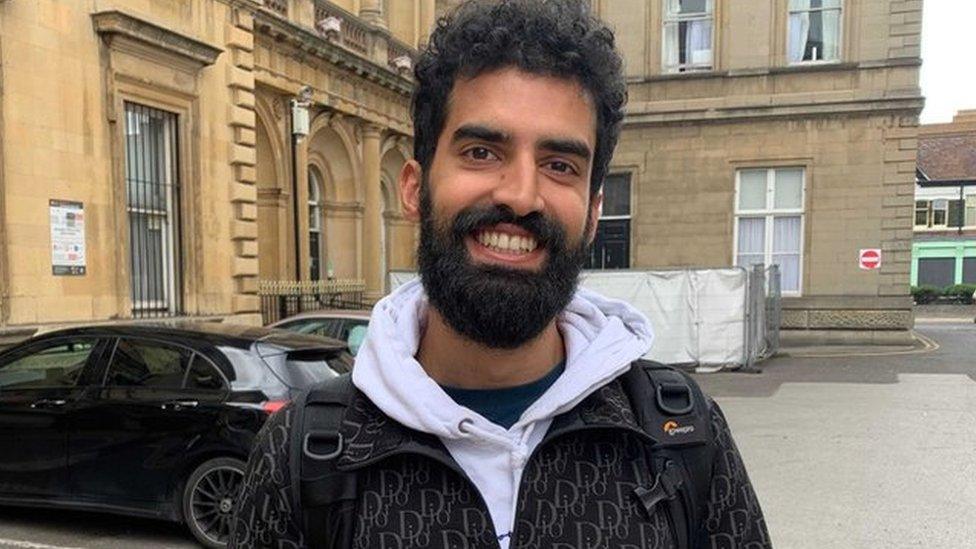Railway ticket office closures: Legal bid over ‘finding where the humans are’
- Published
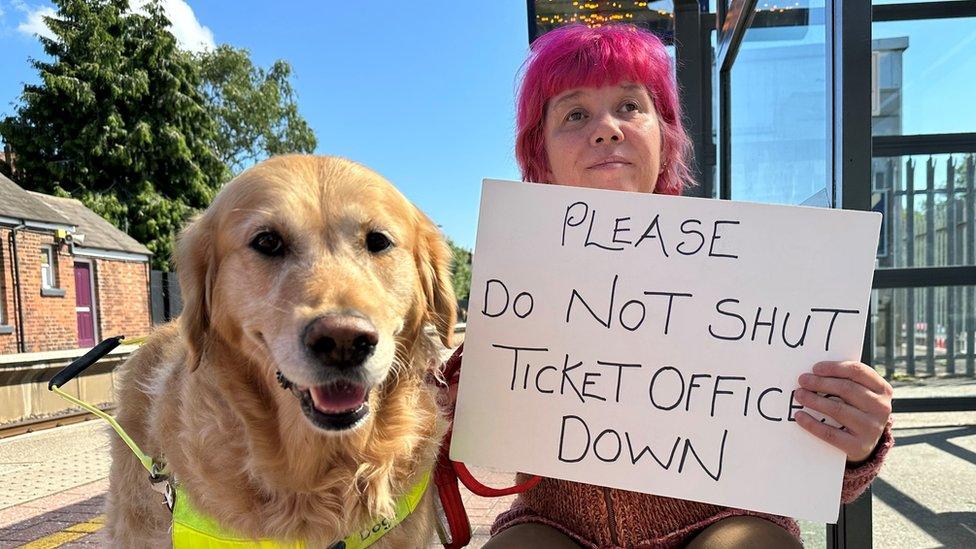
Sarah Leadbetter holding a 'Please do not shut ticket offices down' sign alongside her guide dog, Nellie
Two disabled activists have initiated a legal challenge over plans by train operators to shut nearly all railway station ticket offices.
Plans to close hundreds of ticket offices were revealed earlier this month as part of cost-cutting measures.
Sarah Leadbetter and Doug Paulley claim the consultation process "discriminated against disabled people".
The Rail Minister, Huw Merriman, is set to meet with accessibility groups, the BBC understands.
The plans, announced on 5 July, will see the majority of all ticket offices closed in England over three years. Some kiosks will remain open in larger stations.
The Department for Transport has said it is about "enhancing the role of station workers and getting staff out from behind ticket office screens" and helping people on concourses and platforms.
But lots of disabled people have told the BBC Access All podcast, they are extremely worried about losing a central point of contact at stations, where they know a member of staff will be waiting.
It is a place where people know they can ask about and buy tickets as well as request assistance to reach platforms safely. Guide dogs and white cane users are often taught to find the ticket office rather than the difficult task of having to learn the layout of many entire stations.
Sarah Leadbetter, who is blind, and Doug Paulley, a wheelchair-user, have applied for a judicial review on the grounds the 21-day consultation was too short and information was not provided in all accessible formats such as easy read and audio, which Sarah needs.
She said: "I didn't actually know that there was a consultation happening at my very rural two-platform station. I knew there was a piece of paper on the wall but I can't read any print."

LISTEN: You can hear more about this hot-topic on the BBC Access All podcast.
And The Wellerman singer and TikTok phenomenon, Nathan Evans, opens up about his mental health.

Sarah, who lives in Leicestershire, says she can currently go to the ticket office and staff will assist with her tickets and guide her to the platform, but the loss of a central point will "exclude me from travelling like everyone else does and it's disgusting".
Under these proposals, rather than being in the ticket office, staff will roam the station, offering assistance where they can. But without knowing where staff will specifically be located, Sarah is worried for her safety.
"I'm a disabled woman standing on a platform by myself with my guide dog, Nellie - how do I know that the person coming towards me, saying they're a member of staff, is actually a member of staff?"
Earlier this week five city mayors - who are all Labour - said they were also preparing legal action over a "totally inadequate" consultation.
The Rail Delivery Group, which represents train companies, said only 12% of tickets are bought at ticket offices and the government added changes need to be made to ensure the rail service can "survive".
Without staffed ticket offices, passengers will need to book tickets online or use Ticket Vending Machines at stations.
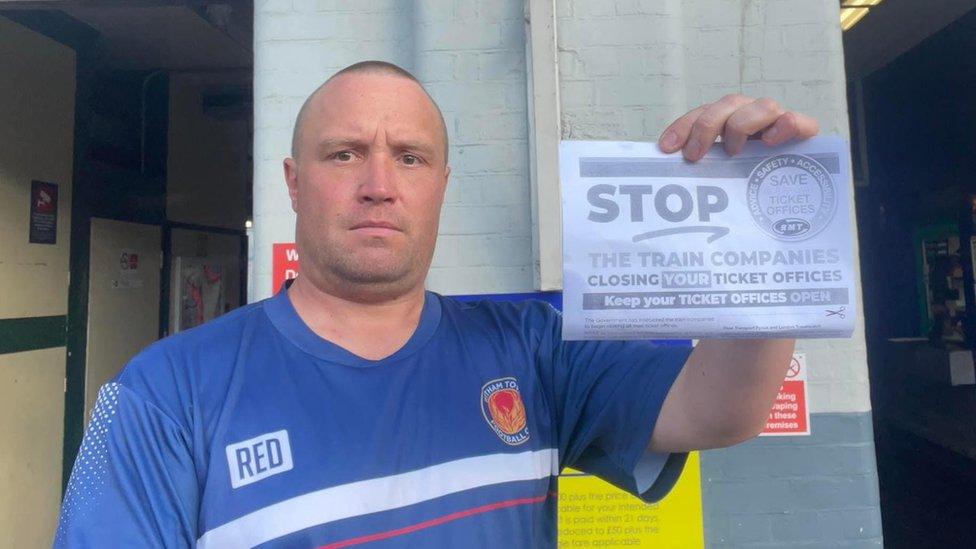
James Beardwell, from Witham in Essex, is autistic and has learning disabilities. He has been protesting against the proposed changes outside his local train station, which he uses to follow his beloved Witham FC.
"I am able to travel independently on the train, but I like that ticket office staff are very clear and they are very helpful.
"In my opinion it's not right to close ticket offices. I find ticket machines very difficult to use, buying tickets on the mobile app is also hard for me."
Transport for All, a disabled-led group focused on increasing access to transport, said it had a number of concerns.
As well as ticket machines being a flat featureless touchscreen and inaccessible to visually impaired people, they also say some people with learning disabilities prefer to use cash, but not all ticket machines accept that.
It is said closing or reducing hours of ticket offices could threaten the availability of facilities such as accessible toilets and lifts which may require staff-held keys to open or operate them.
And the loss of a central location where staff could be found means those who are visually impaired, have an energy impairment or are neurodivergent and find stations overwhelming might find searching for staff incredibly difficult.
'Terrified'
Sassy Wyatt lives in Luton and runs Blind Girl Adventures, an accessible tourism consultancy. She uses trains several times a week to travel around the UK.
"Human contact is what most of us thrive on," she says. "I have a guide dog and she's trained to find things, like the kiosk. She isn't necessarily trained to find people in high-vis jackets."
Sassy says kiosk staff also inform her of the best ticket deals available and have knowledge on the accessibility of stations across the network as well as safely guiding her to her platform.
She says she is "terrified" that visually impaired people will be left to wander along platforms which do not have tactile paving, indicating the platform edge.
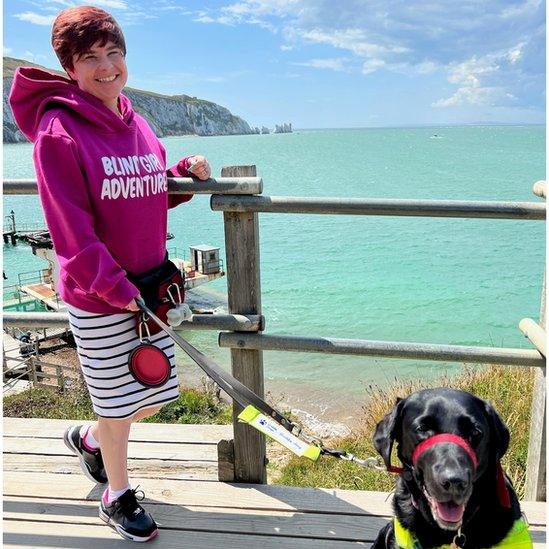
Sassy Wyatt with her guide dog, Ida
"Visually impaired people have even lost their lives because there hasn't been the blistered (tactile) paving. And then you're expecting a visually impaired person to quite literally stumble their way around to find a human."
The Rail Delivery Group says equality impact assessments have been carried out at every station and "companies will continue to engage with accessibility and safety groups".
It said: "You will still be able to book assistance two hours in advance of your journey either using the Passenger Assist app or via a dedicated phoneline."
Sassy says she has had "really positive experiences" of using the new app, but it comes with limitations.
"When you book assistance it tells you the default place for you to meet assistants is at the ticket office… where the humans are."
The public consultation is due to end on 26 July.
You can listen to the podcast and find information and support on the Access All page

Related topics
- Published18 July 2023
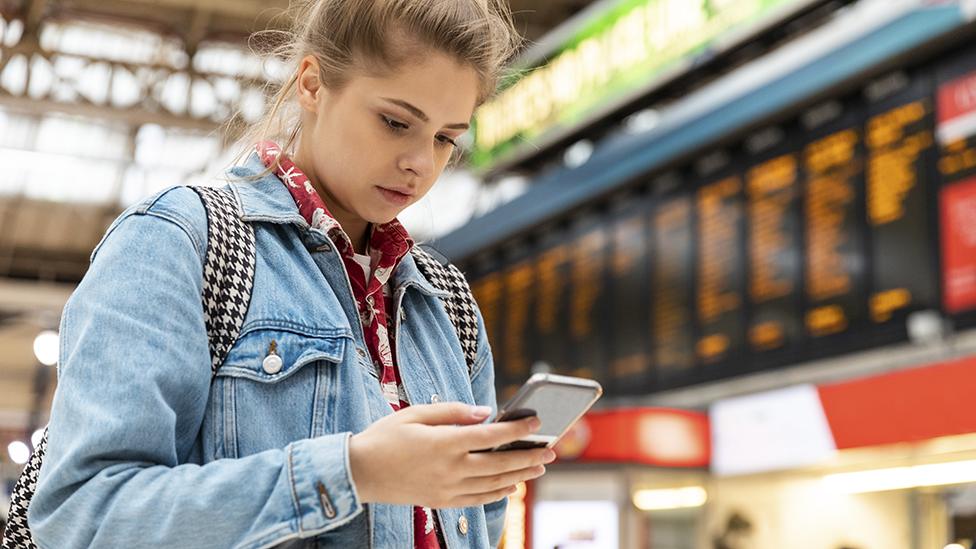
- Published13 July 2023
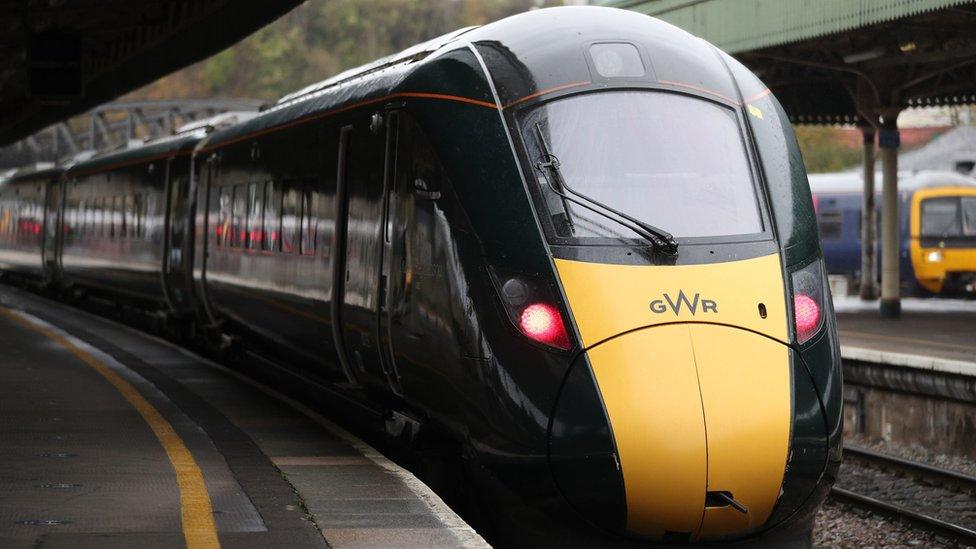
- Published12 July 2023
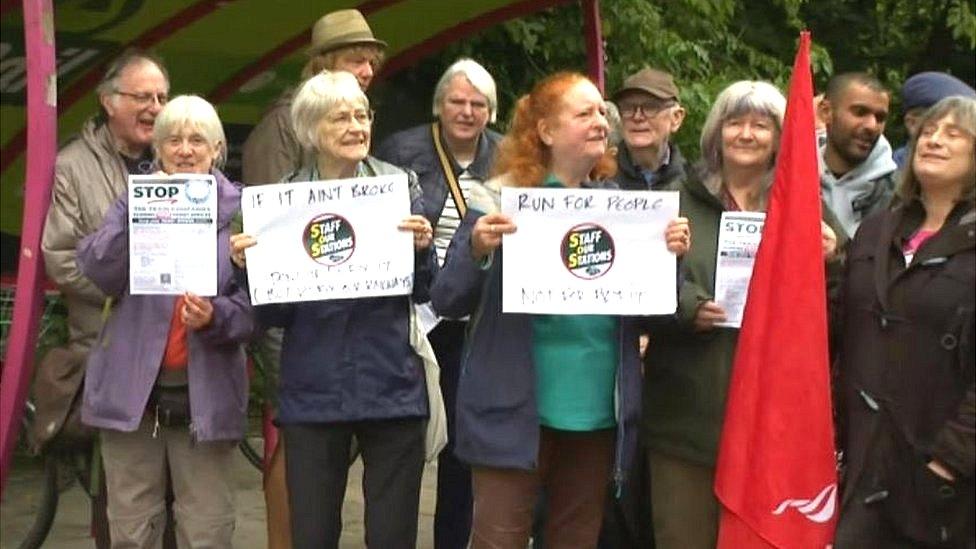
- Published5 July 2023

- Published6 July 2023
